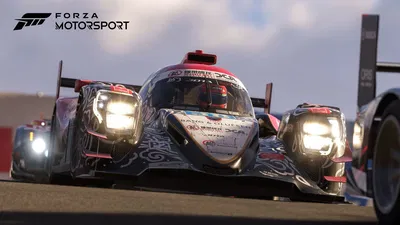Mercedes’ F1 Team Has Helped Build A Machine To Fight Covid-19

Mercedes-AMG’s High Performance Powertrains division has built a life-saving hospital machine that’s due to roll out across wards in every corner of the UK.
Working with mechanical engineers and hospitals in London, Mercedes-AMG HPP reverse-engineered an older, patent-free machine and both redesigned it and improved it for easier, cheaper mass-production – all in less than 100 hours from the first meeting to the first device being ready.

The new Continuous Positive Airway Pressure machine, or CPAP for short, has been approved for NHS use and will help make patients with serious breathing difficulties more comfortable, mechanically assisting their lungs and, crucially, keeping them off intensive care wards that are needed for the sickest patients.
Firstly 100 of the simplified CPAP machines will be delivered to University College London (UCL) Hospitals NHS Foundation Trust, which operates hospitals in the English capital. Very quickly – nothing is expected to go wrong – the devices will be rolled out right across the union.

Ventilators – a more serious piece of kit – are in short supply in British hospitals at the moment, but use of CPAP devices like these in Italy has proven that around 50 per cent of patients using them need no invasive ventilation and can be cared-for on less critical wards, leaving those whose lives really are at risk to be looked after by the most skilled staff in the hospital and significantly easing the pressure on the NHS.

Professor David Lomas, UCL Vice Provost Health, said:
“This breakthrough has the potential to save many lives and allow our frontline NHS staff to keep patients off ventilators.
“I would like to pay tribute to the incredible team of engineers and clinicians at UCL, HPP and UCLH, for working round-the-clock to develop this new prototype. It is, quite simply, a wonderful achievement to have gone from first meeting to regulator approval in just ten days.
“It shows what can be done when universities, industry and hospitals join forces for the national good.”

Professor Tim Baker of UCL Mechanical Engineering added:
“Given the urgent need, we are thankful that we were able to reduce a process that could take years down to a matter of days.
“From being given the brief, we worked all hours of the day, disassembling and analysing an off-patent device. Using computer simulations, we improved the device further to create a state-of-the-art version suited to mass production.
“We were privileged to be able to call on the capability of Formula One – a collaboration made possible by the close links between UCL Mechanical Engineering and HPP.”













Comments
Everyone said it was not possible to do it in less than a few weeks and then we have Mercedes coming in 6 days later with a working system and it shows you what can be achieved if you combine the resources of F1 Development team for 6 days on a single project, these men and women design the fastest racing cars out there, give them a challenge like this and they will do it in double quick time!
That is one interesting take on the problem: reengineering stuff to be simpler rather than overbuilding it.
That said, we’re talking about a whole team of engineers who have nothing else to do, and a CPAP isn’t exactly the most complicated machine to begin with in the first place: it’s not all that simple, but for a team of engineers it’s still a pretty simple machine. It’s mostly taking something and simplifying it, which is basically what they’re always doing during the season with F1 cars.
i doubt, engineers have nothing to do.
Im sure theyre still doing F1 engineering from home on CAD or something
I guess for an F1 designer they wanted something to challenge them and this was a worthy challenge I wonder if they used their CFD computer simulations to run airflow through it too….thats another big advantage F1 teams have CFD simulation software that would be quite interesting to see that in action!
This is so interesting and so good.